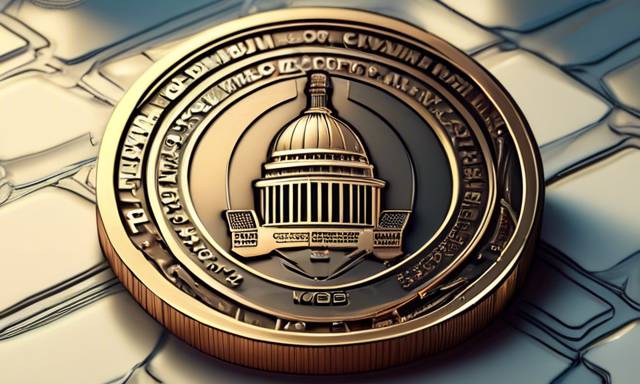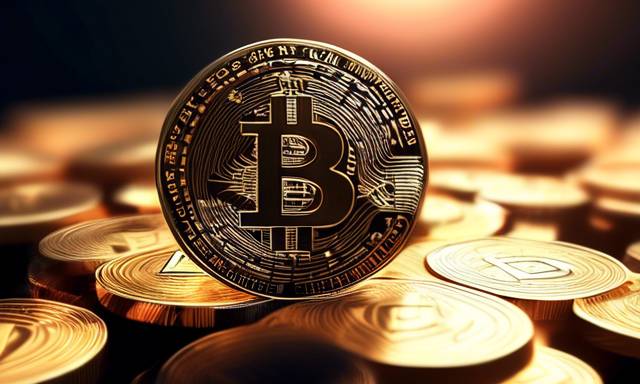Understanding the Current Climate of NFTs and Regulatory Efforts 🌐
This year, the conversation surrounding non-fungible tokens (NFTs) has intensified, particularly regarding the classification and regulatory stance taken by U.S. authorities. A group known as the Digital Chamber has issued a strong statement urging Congress to reevaluate how certain NFTs are treated under current securities laws. They argue that many of these digital assets should fall under the category of consumer products instead of being considered securities.
Calls for Legislative Changes 🏛️
The Digital Chamber, an advocacy organization located in Washington, emphasizes that numerous NFTs are not primarily created for investment or speculative purposes. In their recent communication, they highlighted that many NFTs resemble traditional collectibles or pieces of art. This resemblance means that even if consumers occasionally profit from selling them, the classification as financial products is inappropriate.
- Key points made by the Digital Chamber include:
- Many NFTs serve more as creative works than as investment vehicles.
- A clearer legislative framework is necessary to distinguish between NFTs as consumer goods and securities.
SEC Actions and Their Implications ⚖️
The Digital Chamber’s appeal appears to be a direct response to the ongoing actions of the Securities and Exchange Commission (SEC). Recently, OpenSea, a leading NFT marketplace, faced scrutiny from the SEC, which issued a Wells Notice. This notice indicated that the NFTs traded on OpenSea might be viewed as unregistered securities, potentially triggering enforcement actions against the platform.
The Chamber argues that the SEC’s efforts to regulate this space are detrimental to the growth of the NFT sector. They contend that artists and consumers are being negatively impacted by an agency that is exceeding its jurisdiction. This overreach risks pushing the burgeoning NFT industry to more favorable regulatory climates abroad.
“Congress must act now to ensure that this burgeoning industry remains within the US, for the benefit of the US economy, and not move overseas to more favorable regulatory environments,” the Digital Chamber stated, stressing the importance of defining NFTs as consumer goods.
The NFT Market: Current Trends and Challenges 📉
Since reaching its apex in 2022, the NFT market has witnessed a significant decline. Many collections are now labeled as “dead,” creating financial strain for holders. Specifically, data suggests that a staggering 96% of NFT collections have lost their value. However, some NFT collections continue to perform better than others.
- Successful collections include:
- Azuki, noted for its robust community involvement, has realized a 2.3X return on investment.
- CryptoPunks and Bored Ape Yacht Club maintain popularity and commercial success.
On the other hand, certain projects like Pudgy Penguins, which initially experienced a positive start, are now deemed unsuccessful, demonstrating the volatility and unpredictability of this asset class.
The Future of NFTs in Light of Increased Scrutiny 🚧
The future of the NFT landscape appears precarious, especially with heightened enforcement efforts from the SEC. Should the SEC succeed in categorizing NFTs as securities, it poses a substantial risk to the entire ecosystem, potentially reshaping the industry permanently.
Concerns over this regulatory scrutiny have grown, especially given the SEC’s recent focus on digital assets. Critics argue that the agency’s reliance on enforcement actions as a means of regulation lacks clarity and fails to provide the necessary structure for growth in the industry.
Devin Finzer, CEO of OpenSea, expressed his surprise and concern regarding the SEC’s stance. He perceives it as an overextension of authority that could stifle innovation, aligning with the Digital Chamber’s view that NFTs should be regarded as creative products rather than financial contracts.
Potential Legal Ramifications for Creators 🎨
Several legal experts are also weighing in on the implications of the SEC’s approach, arguing that enforcement demands for NFT registration threaten artists’ First Amendment rights. They highlight that the SEC’s interpretation deviates from the traditional definitions of “investment contracts” outlined in the Securities Act of 1933, which usually pertains to rights to profits based on the efforts of others.
Such legal uncertainties could dissuade creators from venturing into the NFT space, exacerbating the industry’s existing challenges. Proposals have been made to revert to the original definitions in the Securities Act, aiming to provide clarity and preserve the artistic expression inherent in NFTs.
Hot Take: What Lies Ahead for NFTs? 🔮
This year, the NFT sector stands at a crossroads—either defining a path that integrates creativity and commerce or risks losing its foothold due to regulatory overreach. As legislative action unfolds, the environment for NFTs remains tense, confronting creators, collectors, and institutions alike. As discussions progress, it becomes clear that both clarity and support are vital in nurturing this dynamic industry.





 By
By
 By
By
 By
By


 By
By